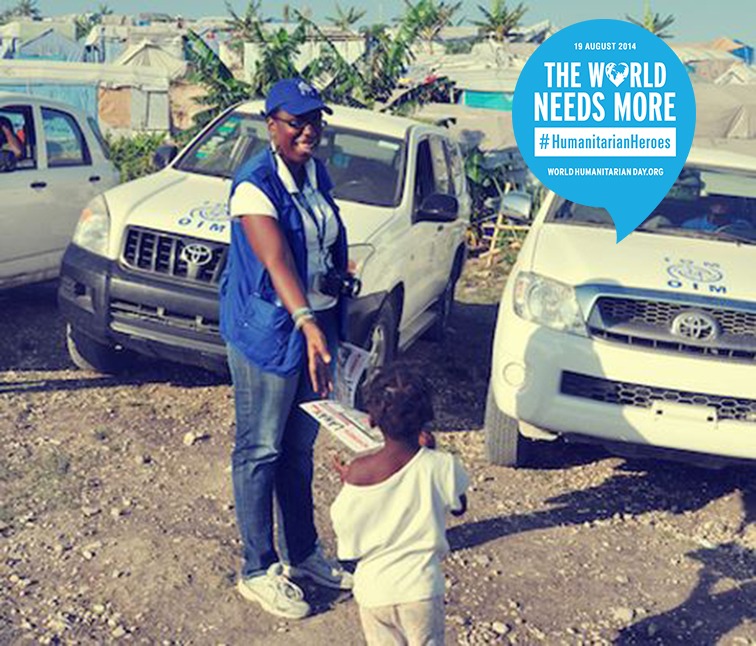DUTY STATION: HAITI
POSITION: NATIONAL OPERATIONS OFFICER
"All I could think about was in what ways I could help."
WHY DID YOU BECOME A HUMANITARIAN WORKER OR VOLUNTEER?
After studying abroad for 3 years and earning my degree in Psychology, I came back to Haiti in December 2009 to officially start my life as an adult. I was excited to finally be done with school, ecstatic about the prospects of working in the field of psychology and above all else, I was glad to be back home with my family and friends.
And then, on January 12th 2010, a 7.1 earthquake struck Haiti and left me, as well as numerous other Haitian families, homeless. I remember feeling so incredibly distraught at the thought that I had lost my home, but also just helpless when I saw the level of destruction and the worsening of most people already precarious life conditions. All I could think about was in what ways I could help.
Until, in March 2010, I was given that chance: I found a job with IOM Haiti and ever since then, I have never looked back.
WHAT'S THE MOST REWARDING PART OF YOUR WORK?
For me, information is key; it is essential. I am proud when I see that the information gathered by my colleagues and I has been consistently used since the earthquake until this day.
We were able to collect information on the displaced populations immediately after the earthquake and the information gathered has changed to fit the reality of the country as time went on.
WHAT ARE SOME OF THE MORE CHALLENGING ASPECTS OF YOUR WORK?
One aspect of my work is carrying out registration in IDP sites; while its primary scope is to have a full and complete information system on Internally Displaced Persons, it also used in assistance efforts, such as relocation and resettlement.
As we see that now the most vulnerable people are the one remaining in IDP sites, and as relocation efforts are being carried to assist these vulnerable people, it is always a challenge when people living in the neighbourhood (in normal houses) in a site’s surrounding infiltrate camps in order to be registered and potentially benefit from relocation programs that they do not necessarily need as much as the actual IDPs.
TELL US A LITTLE BIT ABOUT THE WORK YOU DO?
I work as a National Operations Officer at IOM Haiti. In my line of work, I am involved in the registration process of earthquake-affected Internally Displaced Persons (IDPs) located in IDP sites and camp like settlements in Haiti.
The registration provides such information as: demographics, basic socio-economic data on IDPs current or former occupation, schooling level, neighbourhood of origin, their intentions and wishes and also basic land tenure information on their pre-earthquake housings.
WHAT IS THE MOST MEMORABLE MOMENT YOU'VE EXPERIENCED DURING YOUR WORK?
My first day working at IOM, I was briefed on the work being done and put in a vehicle going for the first phase of registration, which is token distribution. During the distribution, I went into this small house, right underneath a mountain where a single mother lived with four small children ranging from ages 8 to 1. This woman looked so sad, and they all had this starved but hopeful look on their faces that gripped me right to my soul.
We helped her in the first weeks and months later IOM was able to help to relocate her to a better home. I was humbled to see that my work helped this woman and her family have a better life. And to this day, every time I feel discouraged, exhausted or frustrated, I think of this lady and her kids.
I am reminded of why I do this job and I am reminded of the feeling of knowing that I have helped someone improve her life; and that feeling is the most amazing feeling and no person, no situation can ever take it away.
